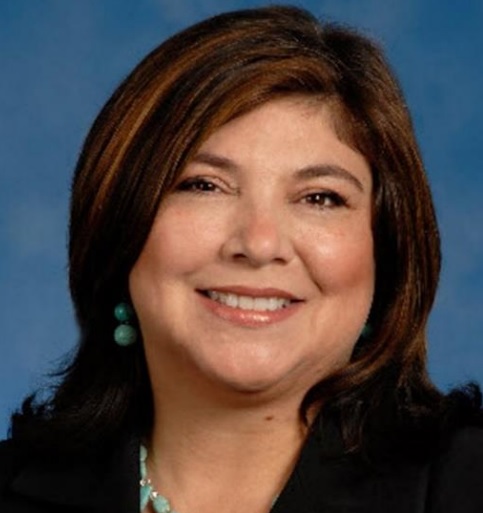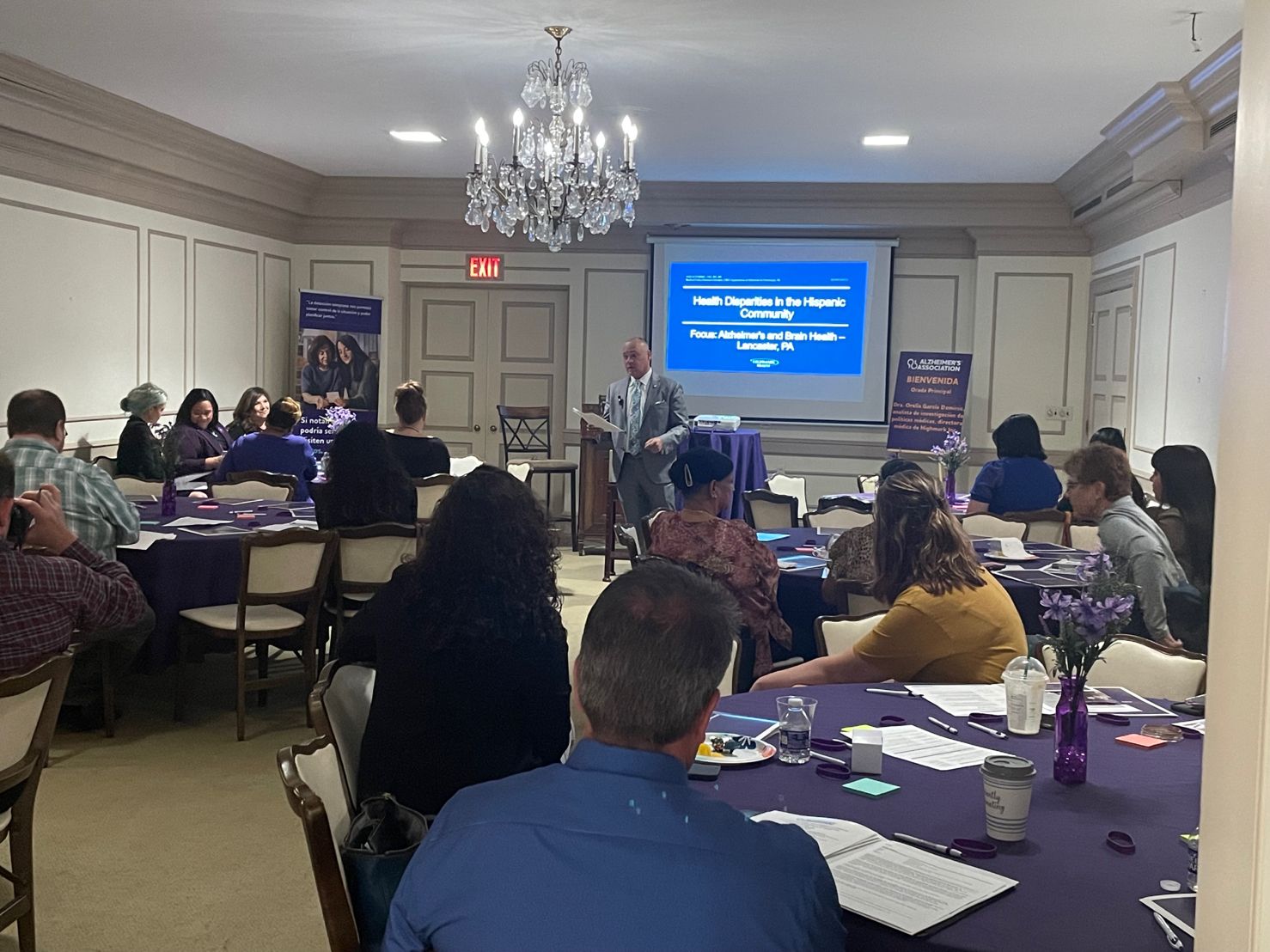In Lancaster County and elsewhere, families are trying to deal with the devastating effects of Alzheimer’s and dementia on elderly family members. Some communities face additional barriers as they struggle to get access to needed care.
All of this was front and center in a presentation by Dr. Oralia Garcia Dominic at the Lancaster Hispanic Summit on Alzheimer’s & Dementia, held Tuesday morning at the Groff Event Center.
Norman Bristol Colón, newly named Pennsylvania’s chief diversity officer, started off the morning’s session with an introduction to the issue.
“Don’t make the mistake of thinking that Alzheimer’s and dementia is not impacting (Latinos),” he said. “Twenty-five percent of the nation’s future is Latino, but we are also an aging population – you need to get involved.”
Thinking about care
“We need strategies,” Dr. Dominic said. “We need to come and strategize together.”

Dominic is chief medical officer at Highmark. The youngest of 16 children, she talked about how her family inculcated in her the values of resilience and how to survive. She talked about her research at Texas and Pennsylvania universities, and the charge to develop solutions beyond genetic research on its own, as she worked on attaining a Ph.D. in biobehavioral health, then going to work on a Highmark team focused on community outcomes.
Part of the issue, she said, is the large role that environmental and lifestyle factors play in Alzheimer’s and dementia risk.
“If your body is healthy, you stand stronger,” she said. “If your brain is healthy, you have less chance of memory loss and other related conditions.”
Data and maps show that health outcomes correlate with ZIP code and credit scores. That needs to change, she said.
“We can change policy,” she said. “Every little small step you do results in a big change.”
Among other things, she would like to see insurance reform.
“I want the insurance plans to say ‘Yes, we will pay for it,’” Dominic said. “There’s nothing more powerful than the stroke of a pen that means (that care) is approved or denied…This is not a time for ‘no’… this is a time for ‘yes, what can I do?’”
Referring to social determinants of health, she pointed out barriers and challenges including less access to services, preliminary cessation of treatment and less responsive care
Action on Alzheimer’s
Last year, the Greater Pennsylvania chapter of the Alzheimer’s Association announced plans for an Alzheimer’s Action Network here. That effort is going well, Jessica Rodriguez said.
Rodriguez is wellness director of YMCA of the Roses and runs a West End yoga studio.
Current goals, she said, revolve around raising awareness and educating people.
“It’s a stigma,” she said, of barriers to improving community response to Alzheimer’s and dementia. “We need people to talk about it more, to push it.”
She stressed the importance of good lifestyle choices, such as diet and exercise, in disease prevention and the goal of spreading knowledge about new treatments.
Disparities and Community Response
Later in her presentation, Dominic talked about impact on communities and the value of proactive approaches.
Keep your mind healthy
Here six things that people can do to reduce their chances of dementia, according to Dr. Oralia Garcia Dominic:
- Pay attention to what’s important
- Exercise
- Sleep well
- Joy conditioning – cultivate your passions
- Meditation
- Lifelong learning
“I work in public health and medical policy to help keep people safe and healthy,” she said. “Connect to your memories and the things that you value the most. … Aging is aging, but it does not mean you can’t live your very best.”
Better diagnostics can yield better outcomes, but only if people have access to them and take advantage of them. People need to stay up-to-date on their screenings, she said.
She’s excited about the prospect of a new blood test that could predict dementia risk..
That will help,.” she said … “We want to be a champion, to arrive at the highest pinnacle, at the summit.”






